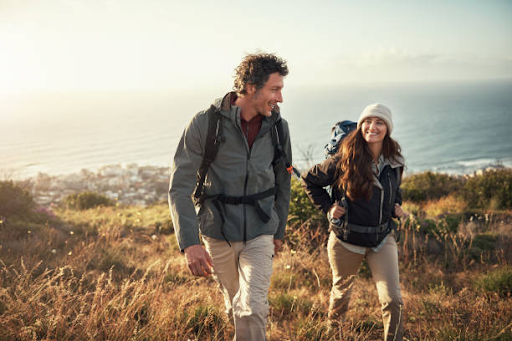For individuals who wear hearing aids, enjoying outdoor adventures can sometimes seem challenging. From varying weather conditions to outdoor noise levels, it’s natural to wonder how hearing aids will perform. However, with thoughtful strategies and proper preparation, hearing aid wearers can fully enjoy the great outdoors without hesitation. Whether hiking through forests, exploring national parks, or participating in outdoor sports, hearing aids can help you stay connected to your surroundings, ensuring both safety and enjoyment.
Choosing the Right Hearing Aids for Outdoor Activities
Before heading out for an adventure, it’s important to consider the type of hearing aids you’re wearing. Different environments present unique challenges, and not all hearing aids are equally suited for rugged outdoor activities. For instance, some models come with advanced water-resistant or dust-resistant features, which are invaluable for outdoor adventures.
If you plan to spend time in rainy or humid conditions, hearing aids with moisture protection will be a lifesaver. These devices help prevent water from damaging sensitive components, allowing you to continue hearing clearly even in wet environments. Some hearing aids are also designed to withstand dirt and debris, making them a better option for those who enjoy hiking or off-road activities.
If you’re unsure whether your current hearing aids are fit for outdoor use, consult your hearing health professional. Regular hearing health exams will help you ensure your devices are functioning properly and are suited for the types of adventures you enjoy.
Protecting Your Hearing Aids from the Elements
Outdoor environments can be unpredictable, with weather conditions changing in an instant. Rain, wind, or extreme heat may take a toll on hearing aids. To safeguard your hearing aids, you can take a few precautions before stepping outside.
Carrying a waterproof case is an easy way to protect your hearing aids during sudden downpours or while near bodies of water. You should also carry a microfiber cloth to dry your devices if they become wet. A hearing aid dehumidifier is another useful tool to have, especially if you plan to spend multiple days outdoors. It helps remove any moisture buildup, keeping your hearing aids functioning optimally.
Wind noise can also be disruptive during outdoor activities. To minimize this, look for hearing aids that come equipped with wind noise reduction features. This technology helps suppress wind interference, making it easier to hear natural sounds like birds, footsteps, or conversations with friends during your adventure.
Staying Aware of Your Surroundings
When participating in outdoor activities, it’s crucial to remain aware of your surroundings for both safety and enjoyment. Hearing aids play a vital role in helping individuals with hearing loss stay connected to the sounds of the environment.
Whether you’re hiking in the wilderness or cycling along a busy trail, your ability to hear approaching footsteps, vehicles, or wildlife is essential for your safety. Hearing aids allow you to pick up on these important sounds, reducing the risk of accidents or unexpected encounters. Many modern hearing aids come with directional microphones, which help you focus on sounds coming from specific directions while minimizing background noise. This feature is particularly helpful in noisy outdoor environments.
When heading out on an adventure, make sure your hearing aids are fully charged, or bring spare batteries if needed. If your hearing aids have a rechargeable battery, consider carrying a portable charging station to ensure your devices stay powered throughout the day.
Enjoying Group Activities Outdoors
One of the most rewarding aspects of outdoor adventures is sharing them with friends and family. Group activities such as camping, fishing, or outdoor sports can be especially enjoyable when you’re able to hear clearly and participate in conversations.
To get the most out of group activities, position yourself in the best spot for hearing. If you’re at a campsite or gathering, try to sit in a circle where you can see everyone’s faces and lip movements. If you’re hiking, walk in the middle or at the front of the group so that you can stay involved in conversations without missing important auditory cues.
If you’re planning to engage in activities like birdwatching or nature photography, hearing aids can enhance your experience. Being able to hear bird calls, rustling leaves, or distant waterfalls adds depth to your outdoor adventure and makes you feel more connected to nature.
Managing Hearing Aids in Extreme Temperatures
Extreme heat or cold can pose challenges for hearing aid wearers during outdoor adventures. In hot climates, excessive sweat may cause moisture buildup in your hearing aids, leading to discomfort or malfunction. To prevent this, consider wearing sweatbands or hats that can absorb moisture before it reaches your devices. Regularly wipe down your hearing aids with a dry cloth to keep them clean and dry throughout the day.
In colder temperatures, battery life may decrease due to the low temperature. Keep your hearing aids and spare batteries close to your body to maintain warmth and prolong battery life. If you’re hiking in snowy conditions, use earmuffs or a winter hat to protect both your ears and hearing aids from freezing temperatures.
In any climate, keeping your hearing aids clean and free from debris is important. Be sure to check your devices regularly for dust, dirt, or moisture that could affect their performance.
Regular Hearing Health Exams for Outdoor Enthusiasts
Regular hearing health exams are essential for individuals with hearing loss, especially if you love outdoor adventures. Your hearing health professional can check your hearing aids for any damage, suggest upgrades, or adjust settings based on the environments you frequent. They can also help you select hearing aids with features that best suit your lifestyle, whether you enjoy hiking, camping, or fishing.
During a hearing health exam, your hearing health professional can also provide guidance on maintaining your hearing aids in outdoor environments, such as using specialized cleaning tools or dehumidifiers. Regular checkups ensure your hearing aids remain in good working condition and continue to meet your needs, regardless of where your adventures take you.



